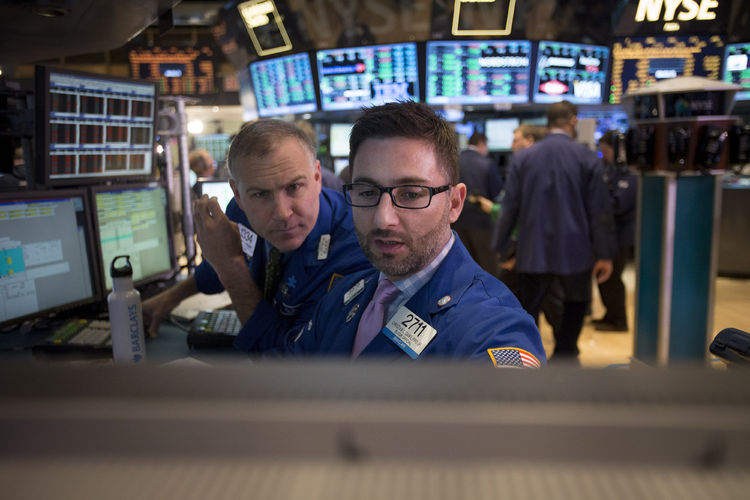Markets
Nerves Amid China Warnings

By Craig Erlam, Senior Market Analyst, UK & EMEA, OANDA
We’re seeing more risk aversion on Tuesday as Nancy Pelosi’s trip to Taiwan generates numerous unsettling headlines at a time of strained ties between the US and China.
US House Speaker Pelosi’s proposed visit has been met with numerous threats from Beijing including an unspecified military response. They have continued this morning, hours ahead of the apparent arrival which is clearly making investors very nervous.
Stock markets throughout most of Asia are in the red, with those in China, Hong Kong and Taiwan unsurprisingly seeing the biggest declines. In Europe, it’s more of a mixed bag while US futures are pointing to a slightly lower open which may change in the hours leading up to the opening bell depending on where Pelosi touches down.
Another member of camp “data-dependent”
The Australian dollar slid on Tuesday as the RBA joined the Fed in camp “data-dependent” following a string of aggressive rate hikes. The central bank maintained that further tightening will be warranted but was keen to stress that they are not on a pre-set path and that they will be driven by the data.
The RBAs forecasts highlight the challenges facing the economy, with unemployment seen falling a little further before rising to 4% but this is naturally subject to immense uncertainty in the outlook. I expect the RBA, like the Fed and others, will continue tightening fairly aggressively over the course of the remainder of the year before proceeding with far more caution into 2023.
Smashed it out of the park
BP unsurprisingly smashed it out of the park in the second quarter, reporting its second highest profit ever as energy firms continue to capitalise on soaring prices. The company has boosted its dividend by 10% and intends to execute a $3.5 billion share buyback on the back of the results which were far stronger than expected. It also highlighted its investment in the energy transition although, in the current climate, that will be overshadowed by the billions being returned to shareholders.
There will undoubtedly be an enormous amount of attention on these earnings, which come days after Shell’s record profits, coming at a time when households are facing eye-watering energy bills. But in much the same way that these firms make huge profits when prices are high, it works both ways. Not that this makes it any easier to accept when we’re experiencing such an extreme example as we are currently.
How influential is Biden in OPEC+?
Oil prices are slipping again on Tuesday as traders take a more cautious stance ahead of the OPEC+ meeting. There’s a lot more uncertainty this time around as they’re no longer on a pre-set path that people were hoping would change but never really did. The decision this week will tell us just how unified the group still is, how committed it is to rebalancing the market and whether President Biden has any influence in the cartel at all.
There have been reports that Saudi Arabia will put forward a case for higher levels of production at the meeting after making assurances to President Biden. Of course, that won’t necessarily translate into an agreement on higher output, with the priority remaining the unity of the alliance. And let’s not forget that the group is still incapable of delivering on what it’s already agreed. So unless Saudi Arabia and the UAE are going to do more heavy lifting, any deal may have little impact on the situation.
Can gold push on from here?
Gold is relatively flat on Tuesday after securing a fourth consecutive day of gains at the start of the week. The yellow metal has been buoyed by the moves we’ve seen in bond markets, the shift to a less hawkish stance by the Fed and the pullback in the dollar. The threat of recession and the potential realisation that the stock market is just experiencing another bear-market rally may also feed into further gold strength.
The next big test to the upside falls around $1,800 although it could see some resistance around $1,780 where it appears to have stumbled this morning. A corrective move to the downside could see support arrive around $1,750-1,760, as we’ve seen in the past. It all depends on how much further yields can fall given inflation is still high and more tightening is almost inevitable.
A bottom in bitcoin?
Bitcoin is recording losses for a third consecutive day in what could be a sign of recovery momentum waning. There certainly were signs of this during the most recent rally which peaked a little shy of $25,000 and the corrective pattern that’s formed over the last month and a half could easily be viewed as a bearish setup following the sell-off that preceded it. It’s difficult to say at this point but it will probably ultimately depend on inflation, the Fed and whether we see any more worrying crypto news flow. Perhaps the hesitancy is a sign that traders lack confidence that this is a bottom and the start of the good times returning.